|
After a year, my Butch at the Beach post is still one of my most popular, but I wanted to write a couple follow-up posts to answer some great questions I've gotten from readers. Here are a few you've been asking:
What other swimming-related questions have come up for you this summer? (I'll probably be writing another swimwear post soon and will answer as many as I can.) What tips and tricks would you give to other butches about swimwear and beachwear?
9 Comments
Hi friends! Sorry for the kinda-long absence. My ADD-addled brain has been preoccupied with a number of things the past few weeks, including but not limited to: 1. Finishing a profile for one of my jobs; 2. Propagating succulents; 3. Doing a big around-the-house project with my DGF; 4. Taking a bunch of photographs for a website for one of my other jobs; 5. Undergoing massive amounts of career-related identity crisis. Anyway, I'm back now (yay! I missed you!) and was wondering what you all thought about the following topic: When, if at all, is separation based on sex ideal/necessary? First, a few caveats. Let's acknowledge that this question is inherently problematic: cissexist, falsely essentialist, and denies the experience of intersex people. It assumes that sex is a dichotomy, which it is not. (Also, note that I'm talking about sex, not gender.) So, I'm curious: What do you think about separation based on sex in the following scenarios? And why? When do you think that sex (or gender) separation is necessary and/or ideal? Would you be happier in a world with no sex separation?
I like supporting companies who are committed to doing social good. So when Uncommon Goods offered to send me some free stuff to check out for y'all, I said sure. The big catch is that I insist on full disclosure to you all: if I get a product free, I'll say it. If I hate a product, I'll say that, too. So here is my quick, honest look at three things from Uncommon Goods (which is actually a site I like a lot). 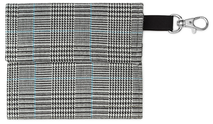 First, let's take the Nerd Herder Gadget Wallet (pictured right, $36). I was stoked about this little number, because it's handmade in the US and looked like a possible one-stop solution to my Dennis-the-Menace-style pocketfuls of stuff. The catch? It's way too big. It holds my iPhone, cards, ID, cash, and more--but it's much larger than my current wallet (which is a plain black thing--as standard and dull as you can possibly get). When it's full, it looks more like a pocketbook than a wallet (eek). It'd actually be a great gift for an edgy, purse-carrying femme (or maybe someone who always carries a bag?), but as a butch who wants to keep stuff in her pockets, I'll pass.  Okay, now we're speaking butch. These titanium multi-tool collar stays ($30; I wish they weren't made in China) won't be the best screwdriver, bottle-opener, or thread-cutter you've ever owned, but will definitely be one of the coolest, and will perform each task the description lists. Awesome gift for a butch buddy, groomsman, dad, mom, or yourself. 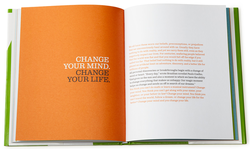 Finally, don't tell my butch buddies, but I'm a bit of a sucker for those little inspirational books with dweeby personal growth exercises. (I actually find some of them quite helpful, thankyouverymuch.) 7: How Many Days is a particularly fine example of this done-to-death genre. It includes cool little exercises designed to jar you out of your routine, brainstorm for the future, match your values to the ways in which you're living out your earthly existence, etc. If you're into it, a steal at $10. Hope these are moderately useful. What other sorts of things would you like me to review? (And if you make or sell anything you'd like me to review, let me know!) The butch bridesmaid post I wrote past week has been getting an ungodly amount of traffic, mostly from Google searches. It seems that bunches of straight people are unclear on certain matters of etiquette when it comes to The Gays. This results in much consternation and awkwardness on their part, most of which could be easily avoided. (Note to straight people: if you're nice and well-meaning and not a homophobe, we probably won't think you're being a jerk. Trust us--we've encountered jerks, and they're not you.)
Here's my best advice to straight people in various situations that seem to make everyone feel awkward. Thanks to my excellent BW Facebook fans for lots of these ideas. Situation A: You know someone's gay and you're curious whether they're dating anyone. You know them well (maybe they're your kid, maybe your gay brother, lesbian sister, whatever). What not to do: Say, "Do you have any new friends?" I hate it when people refer euphemistically to my partner/DGF as my "friend," especially when it's preceded by an awkward hesitation. Something else not to do: avoid it like the plague. Act as if conversation about their romantic life is totally off-limits, even though you'd talk about it if they were dating someone of the opposite sex. What to do instead: Ask the question exactly as you would if they were straight, except switching the pronouns where applicable. "So, are you dating anyone these days?" is totally acceptable. Situation B: You don't understand why your lesbian friend/daughter/sister/whatever is wearing men's clothes. What not to do: Say any of the following: (1) "But you'd look so cute in something pink/frilly/fitted/from the women's department!" (2) "But you have such a great figure!" (3) "But those clothes are so masculine!" What to do instead: Respect our choices. We are well aware that we're wearing gender nonconforming clothing. We're not doing it to hide our figure or because we think we're unattractive or because we want attention or because we don't know how to shop for women's clothing. We doing it because we are much, much more comfortable this way. Many of us actually hate standing out, but we wear gender nonconforming clothing anyway because it feels like "us." Wearing girls' stuff often makes us feel like we're in drag. It's awful. If you want to gift us with clothing, please choose something that goes with our style. If you're confused about our style, inquire further (or do not gift us with clothing). Situation C: You don't understand how a same-sex relationship works (physically, emotionally, whatever). What not to do: Ask, "But who's the guy?" or "How do you have sex?" What to do instead: If you're genuinely curious, there's a plethora of info on the Internet about emotional and physical aspects of LGBT relationships. Don't put us on the spot with such heteronormative silliness. JFGI. Once you've actually made an effort to learn, your questions will be thoughtful and that will be obvious and most of us will be happy to chat about them. Situation D: You call someone "sir," then you realize the person is female. What not to do: Freak out. Or be awkwardly silent, as if it never happened. What to do instead: Don't freak out. It's happened to us before, and it will happen again, and when you're butch it comes with the territory. It's fine to say, "I'm sorry," then move on. Chances are, we feel more awkward than you do. (But comping us a drink or a cup of coffee never hurts.) Situation E: A lesbian couple announces that they're having a baby. What not to do: Ask, "Where did you get the sperm?" or other details of how the pregnancy came about. That's on par with asking a straight couple, "Was it an accident?" Unless they offer it or you're really freakin' good friends, keep your curiosity to yourself. What to do instead: Say, "congratulations!" Express joy. Attend the shower. Ask if they have a name picked out. The usual stuff. Situation F: Two women are out to dinner. At least one of them looks like a lesbian. They're not holding hands or anything, though. What not to do: Assume that they are on a date. What to do instead: Make no assumptions. If they indicate they're together or hold hands or something, great--then treat them just like you'd treat a straight couple. But I hate it when I hang out with a female friend and people think we're together just because I look butch. Situation G: A gay person of your sex compliments what you're wearing. What not to do: Assume they're hitting on you. Become uncomfortable. Make sure to work in a reference to your own sexual orientation immediately, just to clear up any confusion. What to do instead: Say thanks. Situation H: You know someone's gay because a mutual friend or co-worker told you. But then the person himself or herself tells you they're gay. What not to do: Feign surprise so the person doesn't think they're the subject of gossip. Or worse, say something like, "You don't look gay." What to do instead: Nod politely or say (calmly) something like, "Cool." Ask about the person's significant other like you'd do if they were straight. Bonus tips:
Hope this helps. Straight readers: any other awkward situations you encounter with gay people and don't know how to deal with? Queer readers: any other situations that tend to come up in your lives? This post was written by Alison C. K. Fogarty, who blogs for Good Vibrations and is a PhD student in sociology! Check out her website here.
I’m a 28-year-old bisexual femme living in San Francisco. I had my first sexual experiences with women in college, and while I enjoyed them, I was hesitant to identify as bisexual because these hookups occurred with men present. Involving men in the sexual events provided both me and my female partners the opportunity to explore our attractions to each other in a heteronormative context, which felt safer and less intimidating, but also somehow had me feel like it delegitimized my desire for women. I was also confused because, at that point in my life, I didn’t want a relationship with a woman and so I felt like I'd be a fraud if I identified as bi. My last year of college, I entered a long-term monogamous heterosexual relationship and shelved my confusing feelings for women for a while. After college, I entered a PhD program in sociology to study gender and sexuality. While preparing to teach an undergrad class on LGBT identities and expressions a few years in, I came across an article called "Two Many and Not Enough: The Meaning of Bisexual Identities" by Paula Rust. Rust argues that it's not experience that defines a bisexual identity, and that you don't have to be equally attracted to men and women to be bi, nor do you have to want the same kinds of relationships with each. It was while reading this article that I came to fully accept and own my identity as a bisexual. While I had come out to myself, it wasn’t until my relationship ended a year later that I finally came out to others and looked to find a place for myself in the queer community--a community to whom I was already a long-time ally and advocate. (I realize that there is not one queer community, but I am resisting the pressure to further divide and exclude.) Finding acceptance in this community has proved a difficult process, and three years later, I'm still struggling. I attribute my exclusion to three dynamics, which I detail below. 1. Distrust of Femme Appearance At worst, my femme appearance can cause my queer brothers, sisters, and others to associate me with those who have judged, shamed, and bullied them. At best, I am assumed to be an obliviously privileged heteronormative ally who could never fully understand the hardships of the queer community. It is true that my ability to pass as a "normal" straight woman affords me many privileges in our society. My passability, however, also means that I often am denied access to the queer spaces I so desperately seek. Common experiences of social exclusion are the bonding adhesive of the queer community. Ironically, my inexperience with exclusion from heteronormative society means I am often excluded from the queer community. A few weekends ago I went to SF Pride, and spent Saturday afternoon blanket-hopping from friend group to friend group in Dolores Park. When I met up with a female lover, I felt like several of her lesbian and trans friends viewed me with skepticism and mistrust, as if I was an outsider infiltrating their space. Of course, it's impossible to tell how much of my fear of being excluded colors my experience (and may even create a self-fulfilling prophecy!). Regardless, I can objectively state that I was not invited into many conversations or invited to join them in their evening Pride plans. On a day when we are supposed to celebrate love and our pride for our queerness and our community, I felt excluded, and that hurt. 2. Bisexual Femme Invisibility and Delegitimization My invisibility as a bisexual is another force that excludes me from the queer community. As a bisexual femme, I am almost always assumed to be heterosexual. When I’m out with a guy, even if he’s just a friend, I am assumed to be straight. When I’m out with a girl, I’m assumed to be straight. Even if I’m making out in public with a girl, I’m often assumed to be a slutty straight girl. It is very difficult to feel like a part of the queer community when no one knows I’m queer. I often feel like I need to shout it from the rooftops wearing my "I’m queer. Yes, seriously." T-shirt. I end up coming out over and over again, usually facing people who doubt the legitimacy of my sexual identity. Even my mom, a liberal psychologist without a homophobic bone in her body, told me that she thought I wanted to be bisexual because I thought it was "cool." Biphobia, while often unacknowledged, is rampant. I know several closeted bi women who publicly identify as lesbians because they don’t want to face exclusion and ridicule from their lesbian friends. The sexuality of those who identify as "straight" and "gay" is polarized to tail ends of the spectrum as bisexual behavior is effectively policed with shame by both communities. This delegitimization of bisexuality further conceals our presence in the queer community and contributes to my feelings of being excluded. 3. My Femme-Femme Relationship Preference One last, depressingly oppressive barrier to inclusion in the queer community is my desire for femme-femme relationships. It is very difficult to find other femmes who want to date femmes, and gender dynamics have often proved difficult to navigate. My attraction to femmes is on a physical level, not necessarily on a behavioral or personality level. I want a partner who enjoys playing with the gender spectrum, sometimes taking a more submissive "bottom" role and sometimes taking a more dominant "top" role, but most often taking neither. I recently joined OKCupid in hopes of finding a femme partner, and my experiences have not been successful. Many butch women have contacted me, and although I love their attention and the feeling of actually being seen as queer, I have not been sexually interested in them. Many women in relationships with men have messaged me, hoping that I would join them in a kinky triad, but again I am not interested. Not one femme has initiated contact with me. So I’ve scoured the site for potential partners, vulnerably sending messages in hopes of a possible connection. Out of the many women I’ve contacted, few responded. Some told me they were looking for a more butch partner, another said she wanted to be the "only queen" in the relationship, and a few said they were open to being sexual with another femme, but did not want to date one. Only one femme was willing to meet, but after she flaked on our plans twice, I gave up. I have had such difficulty finding a femme partner, and my lack of experience contributes to my inability to access the queer community. This exclusion serves to only increase the difficulty I experience finding a femme partner, thus creating a cycle of increasing exclusion. I decided to share my coming out story and my painful experiences of exclusion because I am committed to raising awareness and sparking dialogue around the challenges queers face in finding acceptance within our own community. Now I have some questions for BW readers:
Although I realize my experience and these questions may be triggering for you, I don't intend for anyone to feel defensive or alienated. Rather, I hope this trigger will generate conversations around this important issue that will ultimately serve to positively impact and strengthen our community. |
|
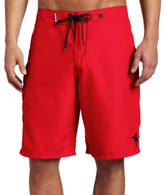
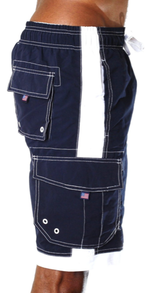
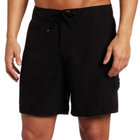
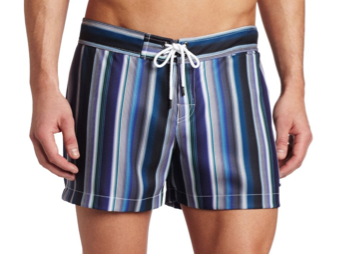
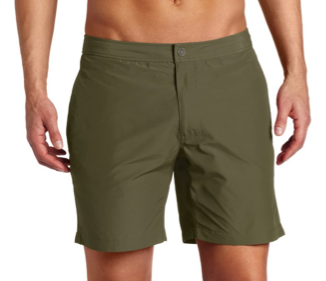
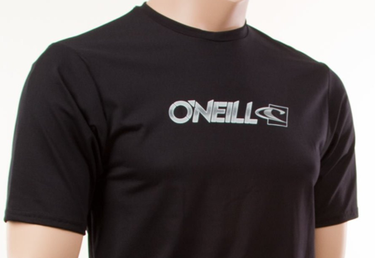

 RSS Feed
RSS Feed